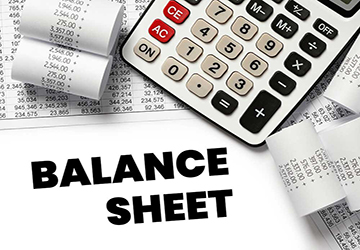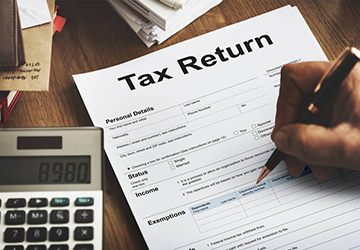There are many things to consider when running a business. An important aspect that is often overlooked is the organization of financial documents.
While this can be challenging, keeping these documents organized is critical to gaining insight into your business and making informed decisions.
Think of it as your business' money compass, giving you a clear picture of where your money is coming from, where it's being spent, and your current financial situation.
Financial documents can be intimidating but don't worry. We'll walk you through each record and explain what it means.
A thorough understanding of these documents helps ensure your business runs smoothly and efficiently.
This article explores the importance of financial records and highlights the top six documents every business needs to have.
What are financial documents?
Financial records are like paperwork or documents detailing how a company manages its money over time.
These include the company's ownership details, how money comes in and out, and what shareholders contribute.
These documents are trusted and used by various individuals and groups, including investors, government agencies, shareholders, employees, clients, and clients, to understand a company's financial health. They help in assessing the overall financial health of an organization.

The 6 Most Important Financial Documents
Here is a list of six key financial documents that are critical to the growth of any business:
1. Income Statement or Income Statement
Often called an income statement or profit and loss statement, the financial document outlines the amount your business has earned and spent over a given period.
Reviewing this report will help you better understand your financial situation and identify opportunities to expand your business.
Viewing this report lets you better understand your company's financial performance and future prospects. By monitoring the income statement, you can spot and address any economic challenges promptly.
2. Balance sheet
Just as a document detailing profit and loss provides insight into a company's financial health, a balance sheet provides a handy overview of a company's overall economic health at a given time.
It provides a complete view of company resources, liabilities, and ownership. Resources include cash, inventory, property, and equipment, while liabilities include expenses related to manufacturing goods and loans drawn for business purposes.
Ownership is the money invested by the owner or investor and the remaining earnings of the business.
3. Cash flow statement
Financial difficulties can lead to the closure of many small businesses. It is essential to continually evaluate and analyze your cash flow statement to avoid getting into a similar situation.
This invaluable document will help you manage day-to-day operations and future investments while providing an up-to-date view of your company's finances.
A cash flow statement is a financial roadmap that allows you to forecast your income and expenses over a set time frame.

4. Tax returns
Entrepreneurs need to manage their business and personal taxes (if applicable). As an entrepreneur, you need to stay abreast of these tax obligations.
The tax documents you need to file depending on how you organize your business; each type of business has its own tax rules.
While many businesses seek professional help from tax experts, it is also important to double-check everything. Knowing your tax liability can help you and your finance team plan for business growth.
5. Accounts Receivable/Accounts Payable or Aging Report
Accounts receivable is what your customers need to pay your business, while accounts payable is what your business needs to pay the person or company that owes you money.
Aging reports classify outstanding debt according to debt due. By constantly updating your account status, you can pay off all outstanding obligations of your company promptly.
It is well known that over time, if payments are not made, the chances of recovering the debt decrease, ultimately affecting the company's cash flow.
6. Supplementary information or notes to financial statements
Additional information or messages to an entity's financial statements are essential to provide essential details and clarifications.
These leads go beyond numbers and provide additional insights into critical areas such as provisioning, reserves, equity, inventory, depreciation, etc.
Understanding these factors is critical to understanding and evaluating a company's financial record.
By examining these notes, we can gain insight into the company's potential for years and assess whether accounting practices are correctly implemented and reflected in the financial statements.
Diploma
Running a business involves completing various tasks, and while completing financial paperwork may not be the most exciting part, it is essential.
These records can help you gain insight into the financial health of your business and help you make informed decisions that benefit your business.
By creating and maintaining these records, you can better understand your company's financial health and identify areas for improvement.
Plus, automating these processes can streamline your operations and increase productivity. Therefore, ensuring that you have these critical financial documents in order and use them effectively to drive your business success is crucial.
Always remember that financial documents are reliable companions to business success!





